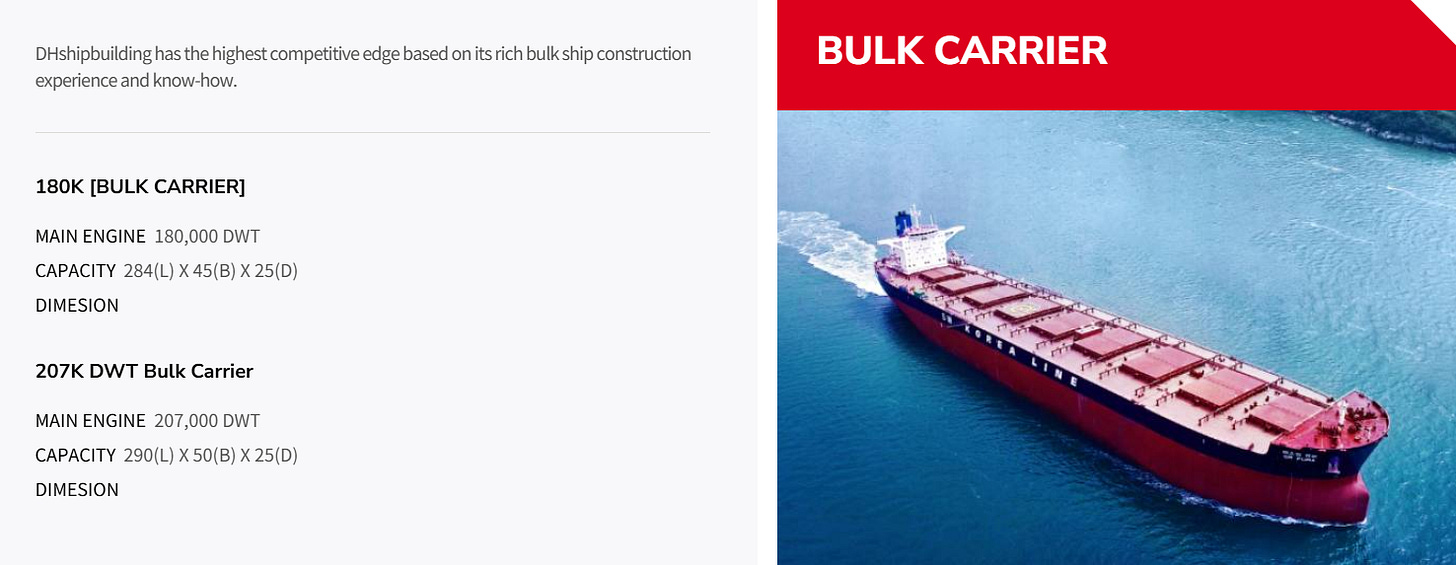DH Shipbuilding is getting ready to complete its IPO in KOSPI in August. DH Shipbuilding would be the second largest IPO in Korea after LG CNS so far this year.
The IPO price range is 42,000 won to 50,000 won per share. At the high end of the IPO price range, it could raise as much as 500 billion won.
The bankers used four companies including HD Hyundai Heavy Industries, Hanwha Ocean, Samsung Heavy Industries, and HD Hyundai Mipo as comps for DH Shipbuilding.
Source: Company data
DH Shipbuilding ("Daehan Shipbuilding") is getting ready to complete its IPO in KOSPI in August.The IPO price range is 42,000 won to 50,000 won per share. The total number of shares planned for the listing is 10 million. At the high end of the IPO price range, the company could raise as much as 500 billion won ($370 million). If successful, this would be the second largest IPO in Korea after LG CNS (064400 KS) so far this year.
The book building for the institutional investors will be conducted from 11 to 17 July. KB Securities and NH Investment & Securities are joint lead managers, and Shinyoung Securities is participating as a joint lead manager.
Major Shareholders - KHI is the largest shareholder of DH Shipbuilding with a 64.8% stake. Insiders and other related parties own additional 2.1% stake in the company.
Company Background
Founded in 1987 as Shinyoung Shipbuilding & Engineering, Daehan Shipbuilding changed its name in 2004 and took a leap forward as a full-fledged comprehensive shipbuilding company. Based in Haenam County, South Jeolla Province, Daehan Shipbuilding has leveraged its strategic coastal location and government support to begin operations as a builder of large and mid-sized commercial vessels.
The company was established initially as a joint venture involving DSME (Daewoo Shipbuilding & Marine Engineering), with the goal of supporting overflow orders from larger shipyards. Over time, it evolved into an independent commercial shipbuilder, specializing in Aframax, Suezmax, and eco-friendly crude oil and product tankers. The first independently constructed vessel was delivered in 2007, marking Daehan’s transition into a standalone commercial shipbuilder. By the end of 2009, the company had already delivered multiple Aframax tankers and began taking orders from overseas clients.
While many South Korean shipbuilders faced contraction or consolidation during the global financial crisis of 2008 and the shipbuilding recession that followed, Daehan managed to remain viable by focusing on high-efficiency production lines, modular construction techniques, and cost-effective vessel types such as Aframax and Suezmax crude oil tankers.
Source: Company data
Source: Company data
Source: Company data
Source: Company data
Source: Company data
Keep reading with a 7-day free trial
Subscribe to Douglas Research Insights to keep reading this post and get 7 days of free access to the full post archives.










